Many people have a love-hate relationship with journaling. Some people can’t get enough of it, while others find the practice tedious and unfulfilling.
If you’re looking for some tips on how to start journaling, or how to make your experience more fulfilling, then this blog post is for you!
It’s not as easy as most people think to start a journal, especially when you’re not used to listening to your thoughts.
Journaling is a personal practice that can help you get to know yourself better. And, once you’ve become comfortable with the process, it’s easy to make journaling part of your daily routine.
Journaling is no longer a child’s attempt at hiding their deepest secrets in a locked book under their bed. Those “Dear Diary…” days have continued into adulthood. And, if you’re reading this article then you know it’s imperative that you start connecting with yourself through words again.
In order to embody your true potential through personal development, you have to have deep conversations with yourself. Luckily there are a number of ways to effectively accomplish that goal.
So how do I start?
Here are some basic journaling tips on how to start journaling for beginners
- The basics on how to start journaling
- How To Start A Journal For Beginners
- So what are the benefits of journaling?
- Is there a right or wrong way to journal?
- What is the easiest journaling technique to get started right now?
- Be gentle with yourself.
- What tools do you need to start journaling?
- Practical Journaling Tips
- Start Journaling Today And Change Your Life Forever
The basics on how to start journaling
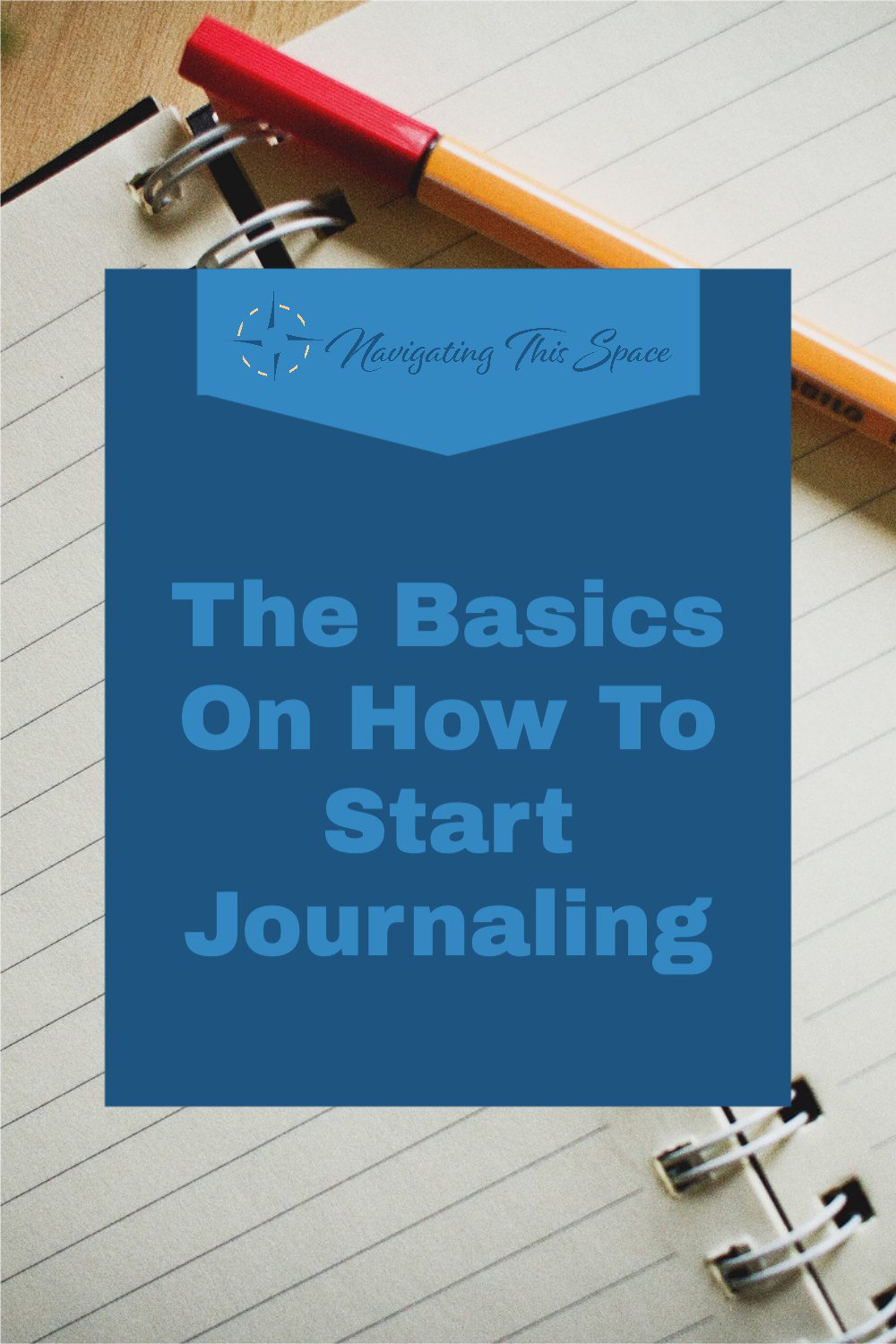
The main reason you should start journaling today is to understand yourself better.
For the many people who have lost touch with their true selves because of life, journaling can help you rediscover that connection and live authentically.
Ultimately you’ll be able to enjoy life more fully by being in tune with your thoughts, feelings, and desires.
The following are some basic tips on how to start:
Tip #01: Find a journal you like
Tip #02: Choose a pencil or pen that feels good to write with
Tip #03: Write what you feel even if you’re not sure how to put it in words
Tip #04: Try using some journaling technique to banish your writer’s block
Tip #05: Write down your thoughts and feelings as often as you can
Journaling is a great way to sort through complex emotions because it allows you time to process them before writing about how you feel.
This helps you make sense of what you’re feeling and find the core reason why you’re having those feelings.
I could end this article here but chances are, you’re still confused about where to start so let’s dive into that section.
How To Start A Journal For Beginners
 Find your Why
Find your Why
Before you start a journal you must find a reason why you want to start.
It could be for your personal growth, mental well-being, or even just something to do in your spare time.
Finding this reason will give you some direction on how to journal and what it means for you.
So why do you want to start journaling?
What benefits are you seeking to achieve from journaling?
Are you starting a journal as a trend to follow others or are you doing it for yourself?
It’s okay if you don’t have the answers to these questions as yet. I’m here to help you find your why, tell you about the wonderful benefits, and enlighten you on how to start your journey with journaling.
Understanding the reason for your journal will help you turn this habit into a meaningful experience.
So what are the benefits of journaling?
Journaling has both short-term and long-term benefits. It’s a great way to release tensions immediately which results in a long-term reward.
These benefits range from feeling better emotionally to experiencing a boost in productivity and creativity.
It helps you process emotional issues quickly by writing them out which has been proven to improve your recovery time and mental health.
It can also help you plan your day better, identify patterns in behavior, set goals for the future, track habits or feelings which will make it easier to change them.
Journaling is a selfless act. Writing down what’s going on in your life takes time out of your day and forces you to focus on yourself.
It’s a great self-care tool that’s worth the commitment.
More great benefits of journaling:
- It’s a great stress management tool
- It improves mood
- It improves memory
- It leads to greater emotional well-being
- It improves immune system functioning
- It improves sleep
- It helps you process difficult emotions
- It can help to avoid burnout
These aren’t the only benefits of journaling either, the list goes on and on. I wasn’t always aware of some of the benefits on the list, to be honest, I was shocked when I researched the benefits and what it does for mental health.
The truth is journaling has a lot to offer for your health, happiness, and well-being.
When you’re not worried or stressed, your body will be more relaxed and a relaxed state of mind means you’re able to excel more at everything you do.
Is there a right or wrong way to journal?
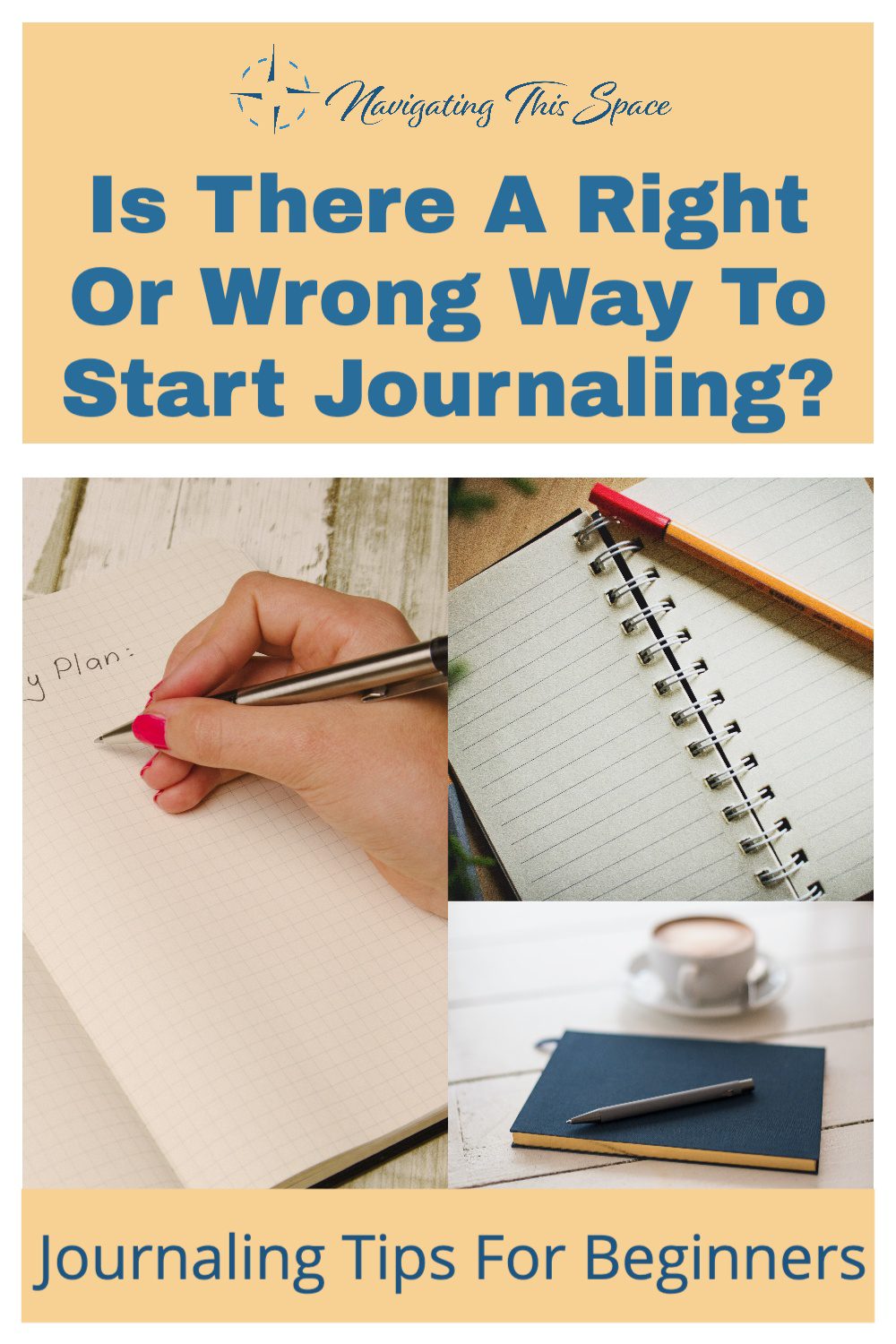
Short answer, no.
Long answer: Journaling is a personal thing. There are no rules to follow, and no one to report to unless you choose.
You have to test what type of journaling technique works best for you and what time of the day you’re willing to set aside to dive deep.
I personally like to write and draw so I keep a combination journal and fill it with everything in my head.
Sometimes I’ll write at five in the morning when my internal alarm clock goes off and I can’t go back to sleep.
Other times, I journal right before bed. There are days when I do both because sometimes life happens and I know it’s best to release my angry or frustrated thoughts instead of keeping them pent up.
I also write down my dreams in a combination journal.
I have some incredibly vivid dreams and I never want to miss the lessons in them or to lose them forever simply because I forgot.
I’m hoping to one day have a separate journal for all my beautiful (sometimes scary) dreams.
A quick journaling tip: There is no right or wrong way to start a journal.
More journaling tips for beginners:
– journal to release stress
– journal as a form of self-care and express yourself freely
– keep it simple and write without planning.
-It’s best not to censor yourself while journaling. Go with the flow!
-write anything that comes into your mind.
– journal on the go, not just when you’re at home
-you’ll find clarity in your thoughts or dreams that might have otherwise been overlooked
– journal to keep your thoughts in order
-write every day if you can.
-maintain a daily routine for journaling, like first thing when you wake up or right before bed.
-journal as an introspective journey into yourself and be mindful of what’s bothering you or what’s occupying your mind at the moment
-journal when you feel like crying
-journal when you’re happy
-journal when you’re angry
– journal if you feel like nothing is going your way.
-write about what’s been on your mind lately, the things that make you happy, sad, and all of the things in between.
-you’ll find peace within yourself by writing down what concerns your heart, spirit, and energy.
This page contains affiliate links. This means that if you click a link and buy one of the products on this page, I may receive a commission (at no extra cost to you!)
What is the easiest journaling technique to get started right now?
Start a journal right now
Since I’m sharing with you some valuable journaling tips for beginners, I figured you might want to know the easiest journaling technique to get started right now.
This is a very simple journaling hack that has helped so many people overcome anxiety and depression. It’s called “The Five Minute Journal Technique”.
In this journaling exercise, you’re going to need only five minutes of uninterrupted time.
You’ll want to limit all distractions because you’ll be focusing on your breath and writing three things that are going well in the world right now and why they’re significant to you.
Here’s how to do it:
-Start by writing down 3 things that happened today- no matter how small they may seem. This is called “morning pages” or “stream of consciousness”.
-Next, write down one thing you’re grateful for or that went well throughout your day.
-Finally, end with a sentence about what you’ll be doing to make today even better than yesterday.
After this journaling exercise is complete, do a quick mental body scan to check in with your thoughts, feelings, and your body.
This journaling technique is a great way to dip your feet into the waters of journaling.
The best part about this journaling exercise is that you can do it anywhere, at any time of day or night.
Once you have a moment of free time, you can bring out your notebook, pen to dive in deep and write.
Other valuable techniques you can start now
For me, these are the easiest journaling techniques to get your feet wet.
- Bullet Journal
- Writing Journal
- Travel Journal
- Art Journal
The Bullet Journal
The bullet journal is a versatile journaling system that can be used for anything and everything.
If you’re looking to start journaling, but don’t know where to begin, the bullet journal might just be your answer.
There are countless ways in which this type of journal could work for you there’s no one right way!
The bullet journal is just a way of organizing your journaling, but you have the freedom to choose what order you prefer.
For some people, this means starting with the year and then going through daily logs.
Others may prefer to start at the end of their day and work backward towards morning pages.
The best journal for you is whatever journaling system works.
Writing Journal
A writing journal is perfect for people who want to journal about their personal lives.
If you’re a writer, or just enjoy doodling as an outlet for your creativity, then this is perfect for you to start with.
Writing in a journal is all about you so treat it as a space to express yourself without that negative voice in your head telling you that you can’t do it.
You choose how you want to get started journaling, the choice will always be yours.
Travel Journal
Travel journals are fun, they have a pretty little cover and are usually filled with pictures.
It’s the perfect journal for travelers who love to write about their adventures.
If you’re looking to explore new places around the world then consider starting a travel journal to plan your excursions and transcribe your memories.
The best thing about travel journals is that they’re full of memories from your trip on every single page!
It’s like you can relive those memories, thanks to your journal entries, every time you look at a page.
You’ll be surprised what details you simply forgot because you were having such a great time.
Art Journal
This is one of my favorite journals to keep. An art journal is a journal that is filled with doodles, sketches, children’s drawings, and anything creative that comes to mind.
If this sounds like something you’d love then you should consider getting a sketchbook or notebook for art journaling. It’s worth it!
A good place to start would be by drawing the outline of an object or start by drawing something completely abstract.
An art journal is supposed to be fun and creative, so don’t let yourself feel pressured to make something perfect.
Doodling in a journal is one of the best ways to express your creativity!
If you’re artistic and have some sketches laying around that you want to include in your journal, add them! Make them better or worse, the choice is yours.
Quick journaling tip:
To start out, I recommend getting just one journal to hold all the techniques that you’re willing to try. Try not to overwhelm yourself. This new activity should improve your mood, not damper it.
Be gentle with yourself.
There will be days when you will have no inspiration or know what to write, this is perfectly normal and completely fine.
Make journaling a habit but try not to be too hard on yourself.
On those uninspired days, if you chose to write in the morning, write a list of all the things you’re grateful for.
That gratitude list can include the people you love, your ability to feel, smell, love, and be alive.
It can either be a shortlist or a long one. Go with how you feel.
Keeping a journal and writing how you feel will be more effective and beneficial than merely listing events and non-emotional situations.
The goal is to get in touch with your true self and that requires you to be vulnerable with yourself.
Don’t be scared to write in your journal exactly what you feel— this is your time to be uncensored and unfiltered.
There’s no use or benefit in sugar-coating it. It’s for your eyes only and the ones you choose who to share it with.
What tools do you need to start journaling?
The basic tools you need when starting and keeping a journal are a journal and a pen or pencil.
- A journal
- A pen (Start with a pack so you’ll always have one when you can’t find the one you were using.)
- A stencil set (optional but makes a huge difference because it adds a more expressive element through its artistic symbols)
Your journal can be anything from an actual spiral-bound notebook you used to use in school to a fancy leather-bound journal that I prefer especially when traveling.
Starting your journal and building your journaling habit should be the easy part.
There’s no need to get fancy from the beginning— that comes with time.
When I started journaling, I used to uses the black and white notebook that I had for school. I’d fill the pages with poems, drawings, lyrics, and a few pasted pages of things that inspired me.
Now, I personally love and prefer leather-bound journals because they look so elegant and luxurious but at the same time I write a lot so I end up having multiple journals that are simply hardcover rather than leather.
The journaling advice I can give to you is this:
– Start small and write anything, your journey is just beginning.
You can start with a cheap notebook and I recommended that you do or go all out on an expensive leather-bound journal as I do sometimes.
Some people like a small pocket-sized journal, while others choose large books they can keep on their bedside table.
Whatever you feel comfortable using, buy it and use it.
I go through different phases where I require different types of journaling books.
One of my all-time favorite combination journal-the journal I include everything in is from Moleskin.
The little pocket in the back of the book allows me to fill it with stencil sheets that I use every time I write.
I really love how they bring the pages to life with all their different designs and they actually give me more ideas on things to write.
My pocket/traveling journal is from Muji.
I LOVE that store!
Everything is so practical and so damn cute!
To be completely honest, I would buy the whole store if given the chance. I got a felt pen from there and I’m obsessed. Even though it leaves streaks and takes a little bit longer for the ink to dry, I’ll be holding on to this pen for dear life!
Practical Journaling Tips
1. Use the medium you love the most (Paper or Computer)
Even though writing with a pen and paper has many benefits, you can start your journal digitally if you want to.
There are plenty of journaling apps for tablets and smartphones that will make it easier; just give them a try!
A great app for journaling is Day One. The basic plan is free and offers unlimited text entries so you can write your heart out.
2. Write whenever and wherever you feel like it
When you get the inspiration to jot down something, take out that journal and get it done.
Don’t let time dictate when or where you journal. If the mood strikes, write it down!
When journaling on paper, be sure to leave space for your future thoughts in between entries so that they don’t bleed together and become difficult to read later.
3. Set aside a time to write to stay accountable
Schedule a time slot for journaling and stick to it.
Start with a free journaling app like Day One or just take out your pen and paper.
Choosing a specific time to write trains your brain to be ready whenever you are.
4. Start at your own pace while pushing yourself a little
You have to do things at your own pace. Trying to journal more than you’re comfortable with from day one will only lead to frustration and discouragement.
Don’t overthink it – start writing whatever comes to mind, write what feels natural first. Work out the rest later in editing or by adding bullet points if needed.
It’s your journal, so do what you want.
5. Use journal prompts if you have writer’s block
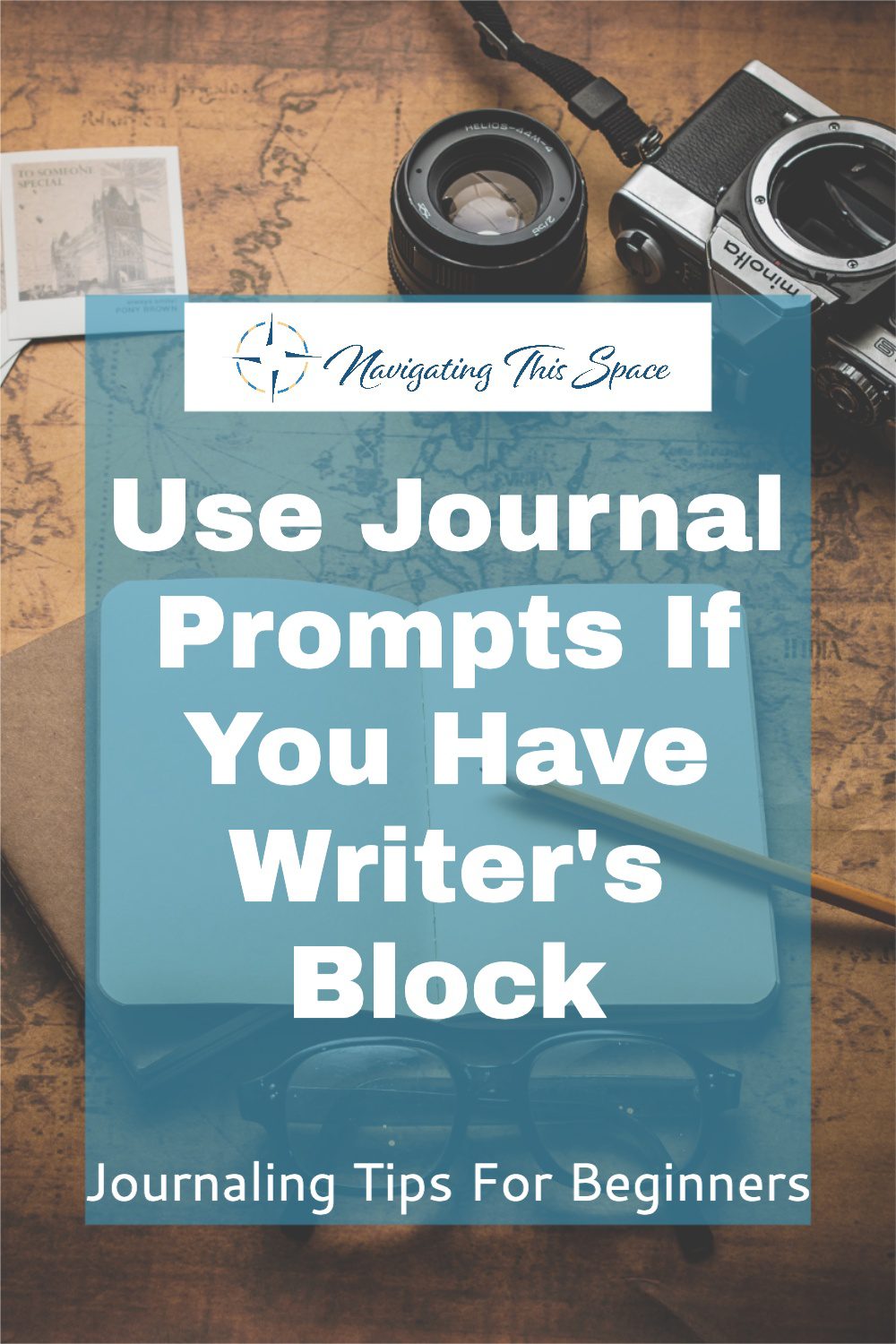
Journal prompts are the best way to get your brain going again when you’re stuck.
Different types of journaling prompts include:
– One sentence journaling, which is just writing one or two sentences about your day. This can be a great way to get started and build up momentum if you’re a beginner.
– What I feel today prompt: this prompts people to think about what feelings they are experiencing that day and how it
– Stream of consciousness journal prompts which is writing what’s on your mind, literally anything that pops into your head.
– Memory lane journaling, which is writing about memories of the past. It can be a great way to work through difficult emotions and thoughts by documenting them.
There are more than enough prompts online to get you writing when it’s time to journal your thoughts so don’t feel discouraged when staring at a blank page.
Start Journaling Today And Change Your Life Forever
Journaling is a great way to give your brain the time and space it needs for creativity, contemplation, or just plain old getting things off your chest.
We’ve discussed some of the benefits of journaling – there are many more! And they can all be yours if you start writing down whatever’s on your mind today.
Whether it’s about work stressors, school tasks, or home duties, don’t keep these thoughts trapped inside any longer.
It doesn’t matter whether it starts with an entry like “Dear Diary” or Things I’m grateful for; write them down so they aren’t in your head anymore!
What questions do you have about starting your own journal? If I missed anything, please let me know in the comment section.
Now it’s time to start.
Happy Journaling!
Pin It!
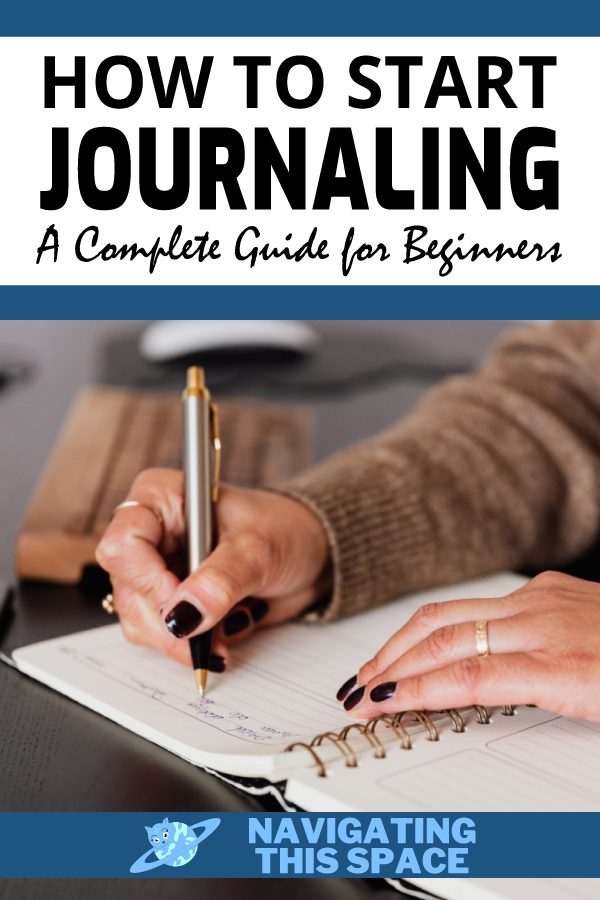
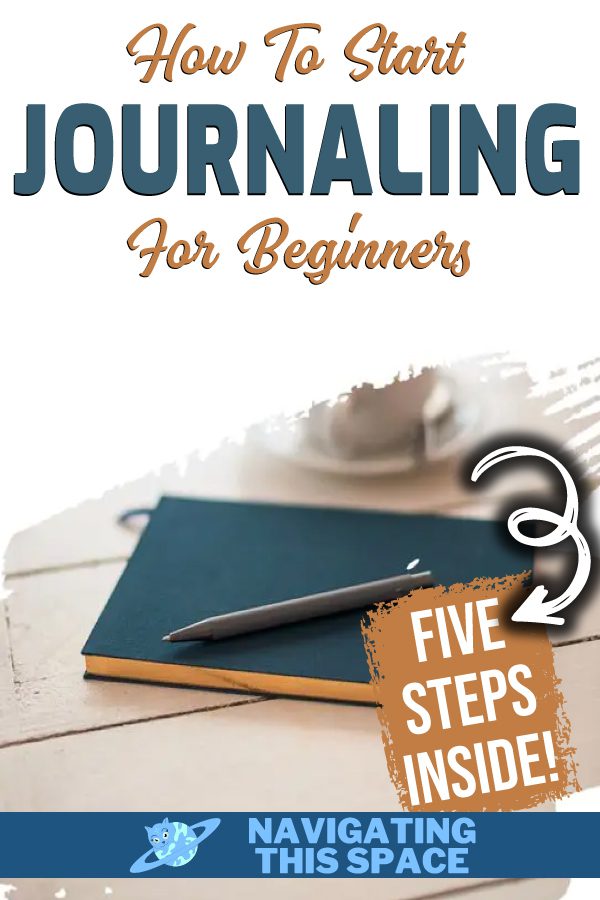
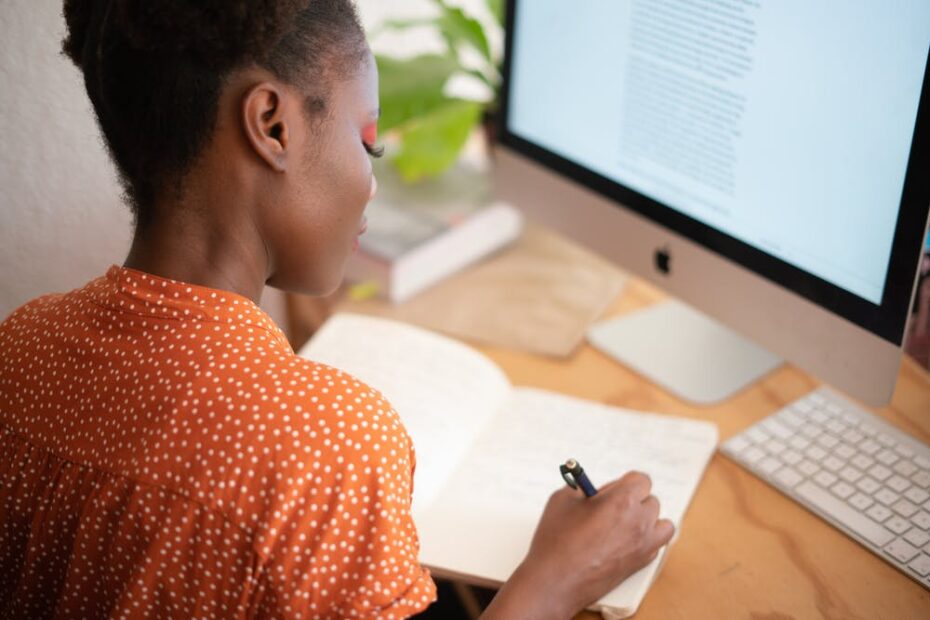
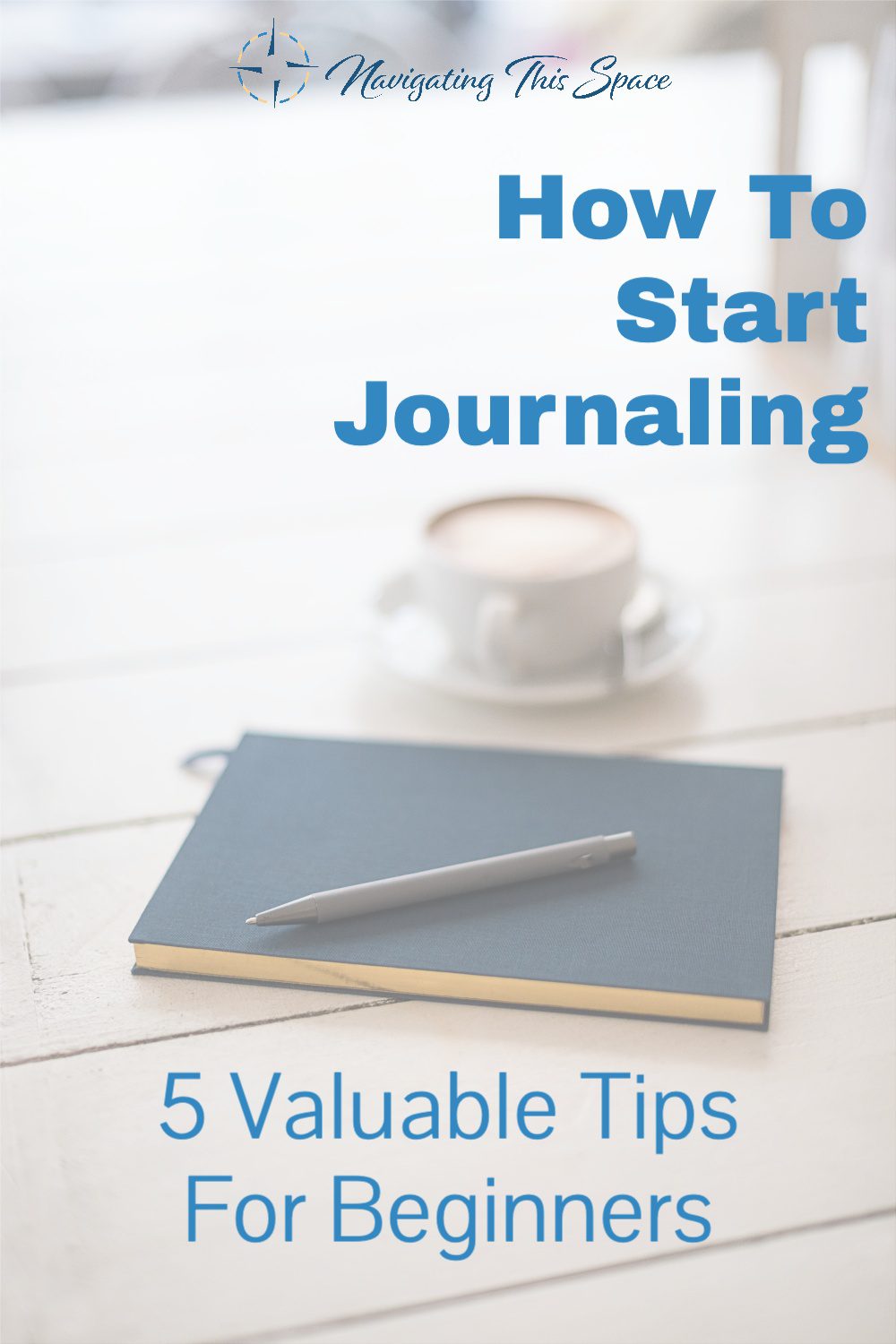 Find your Why
Find your Why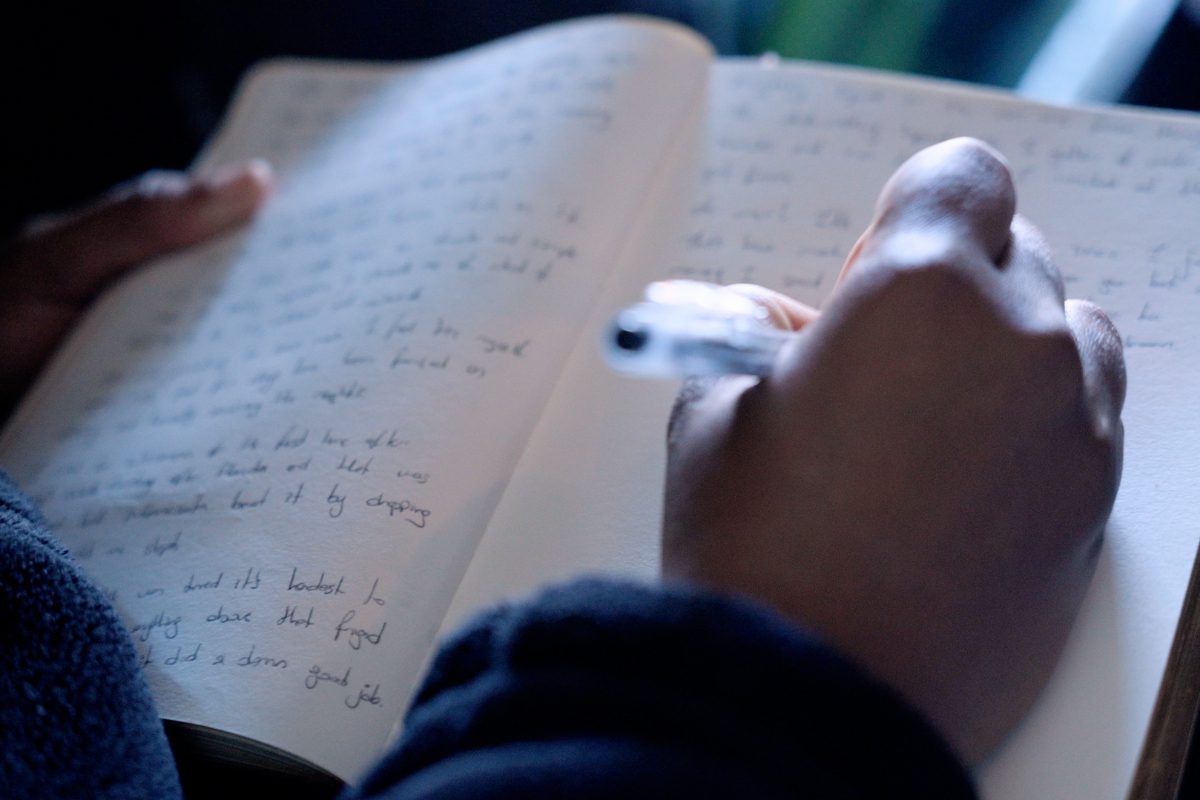
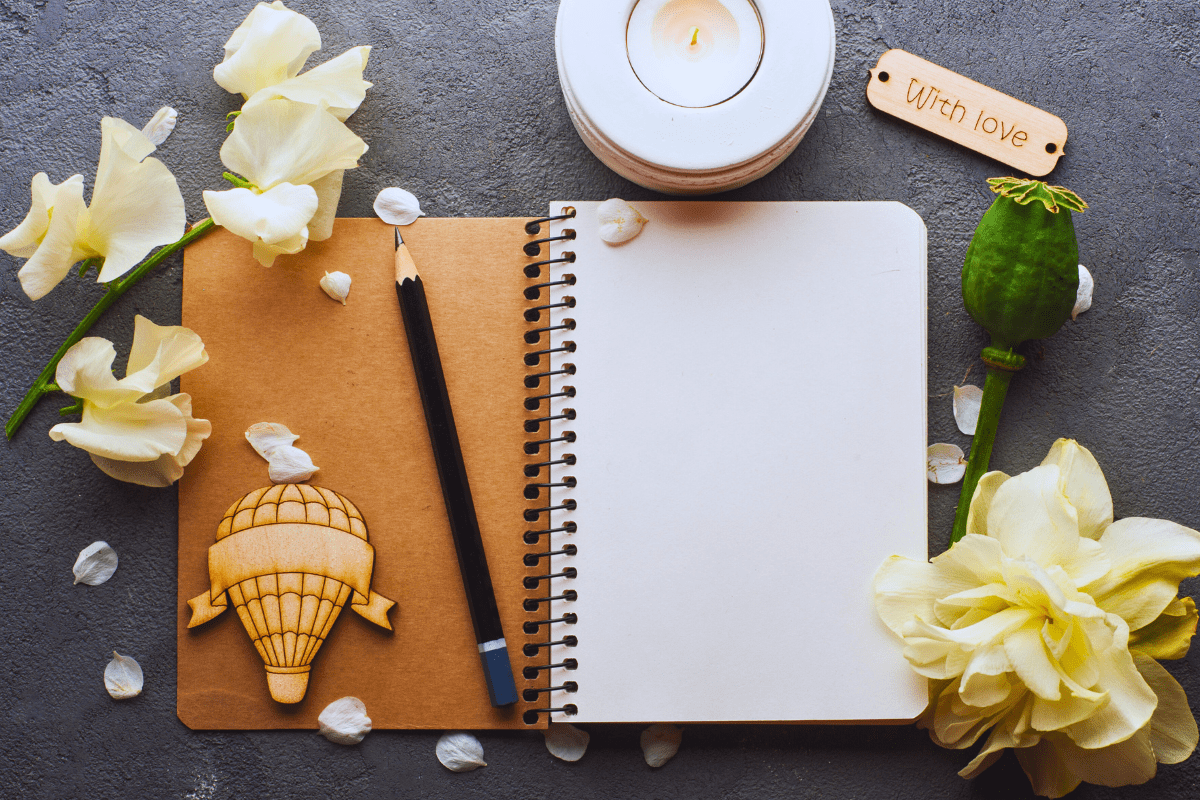

Always looking for new journaling content and love this post! it’s the perfect no-pressure beginners guide. I look forward to reading more articles!